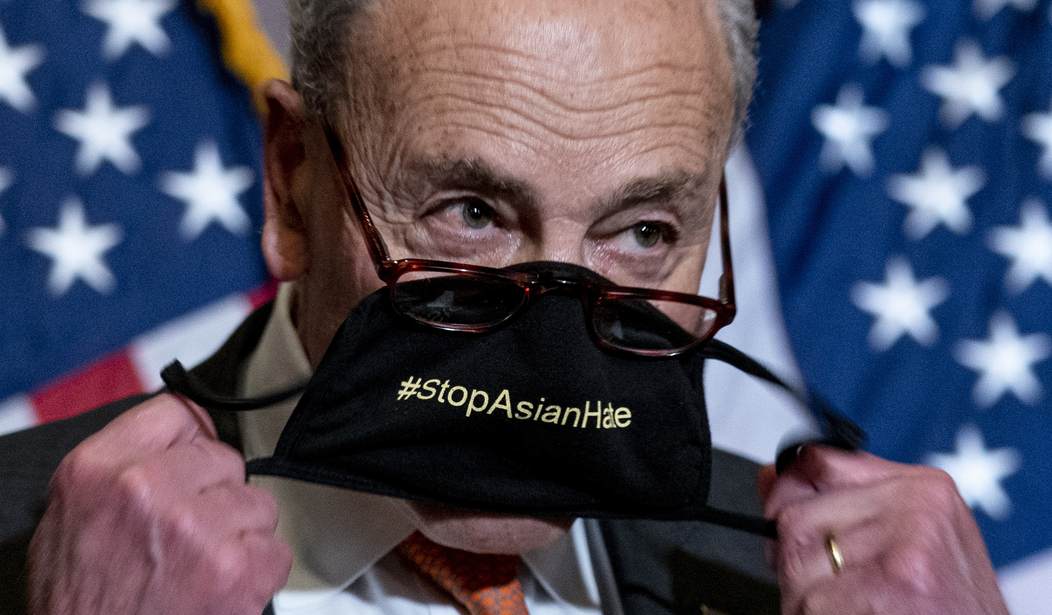On a day when there’s video of an ugly new crime against an Asian-American circulating, it’s hard to fault the WHO for wanting to do what it can to spare nationalities from being blamed for the spread of a deadly disease.
But in that case, you’d think they’d stick with the genetic code they’ve been using. For instance, B.1.1.7 is the so-called British variant. Why not just use “B.1.1.7” uniformly instead of “Alpha,” as they want to do now? The Greek letters are one more bit of inscrutable jargon for normies to learn.
Also, there’s something useful in tying variants to their country of origin. Even those who are only casually following global COVID news know that India is enduring the most disastrous outbreak of the pandemic. To hear that the “Indian variant” has made inroads in the UK and is beginning to spread in the U.S. will make those casual news consumers sit up and keep taking precautions in high-risk situations. Telling them instead that the “Delta variant” has made inroads will register only with those who’ve gone to the trouble to learn which one the “Delta variant” is. Which won’t be many.
The WHO has named four variants of concern, known to the public as the UK/Kent (B.1.1.7), South Africa (B.1.351), Brazil (P.1) and India (B.1.617.2) variants. They will now be given the letters Alpha, Beta, Gamma, and Delta respectively, to reflect their order of detection, with any new variants following the pattern down the Greek alphabet…
The WHO said: “While they have their advantages, these scientific names can be difficult to say and recall and are prone to misreporting … As a result, people often resort to calling variants by the places where they are detected, which is stigmatising and discriminatory.
“To avoid this and to simplify public communications, [the] WHO encourages national authorities, media outlets and others to adopt these new labels.”
British conservatives are grumbling about the name change. “Changing names only confuses and frankly is a million miles from the real issue,” said one Tory MP to the Daily Mail. Former leader Iain Duncan Smith added that it was “a bit late in the day” and argued that the WHO, not the variants, should be renamed because “they failed to bring China to book for what they have done.” It’s true, it’s more of a Chinese Health Organization than a “World” one.
Whatever you want to call B.1.617, China has now locked down part of a city of 15 million people after cases of the variant were detected there:
Guangdong province had been reporting daily single figures of local cases, including asymptomatic cases, for more than a week, until the case load suddenly jumped to 23 on Monday, including three asymptomatic cases, and 11 on Tuesday. Most of Guandong’s cases are in the city of Guangzhou, with some in nearby Foshan, which has a population of 7.2 million…
In response hundreds of flights at the busy Guangdong Baiyun international airport have been cancelled, and authorities ordered some streets in the Liwan neighbourhood of Guangzhou city to isolate at home, with only one person per household allowed out to buy daily necessities.
On Sunday all 15.3 million Guangzhou residents were barred from leaving via bus, air or train without a green code on the health management app and a negative Covid test taken in the preceding 72 hours.
Thirty-four cases in a 48-hour period was enough to get the Chinese government to isolate the entire city. How come? It’s because they’re watching what’s happening in Nepal, an Indian neighbor where cases have exploded, and fearing an India-style wave overwhelming China if B.1.617 gets rolling. Anxiety is rising in the UK too as the Indian variant has become dominant there, as I described on Sunday. Scientist Eric Topol put together this cheat sheet which captures why B.1.617 is so fearsome. Simply put, it appears to be the most highly contagious strain of coronavirus known to medicine right now:
Updating this simplified table for the key properties of the major variants with their new @WHO Greek letter names via @mvankerkhove
There is 1 common feature for all: Vaccines Work pic.twitter.com/uGojKKmzoB— Eric Topol (@EricTopol) May 31, 2021
In fact, it may be even more transmissible than doctors initially thought. The early guess was that it was 50 percent more contagious than the British variant. That’s now been bumped up:
The PHE report last week also looked at "secondary attack rates" – chance that a close contact of a confirmed case will also test positive (NB contacts with no symptoms not necessarily tested)
They estimate that person with B.1.617.2 is 67% more likely to infect a contact. 4/7 pic.twitter.com/OEYeNRbx4P
— Prof. Christina Pagel (@chrischirp) May 31, 2021
Pfizer’s vaccine works on the Indian variant, albeit with reduced effectiveness. Presumably natural immunity works too. Despite the rise of the variant in the UK, that country reported zero deaths from COVID today for the first time during the pandemic, a sign that high levels of immunity in the population are limiting the damage. (On the other hand, B.1.617 has taken off in the UK only recently and it typically takes a month or so for deaths from a new wave of COVID to start showing up.) In any case, if you’re neither vaccinated nor naturally immune, your risk of infection will rise as B.1.617 begins to out-compete B.1.1.7 here in the U.S. Protect yourself.








Join the conversation as a VIP Member